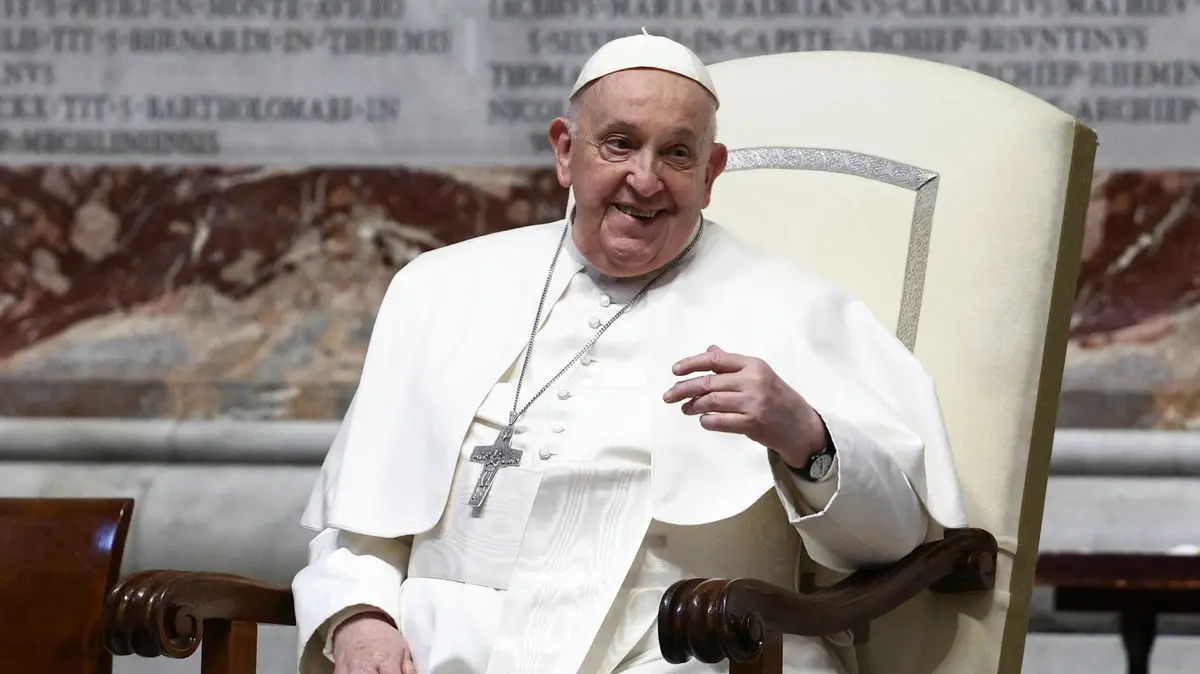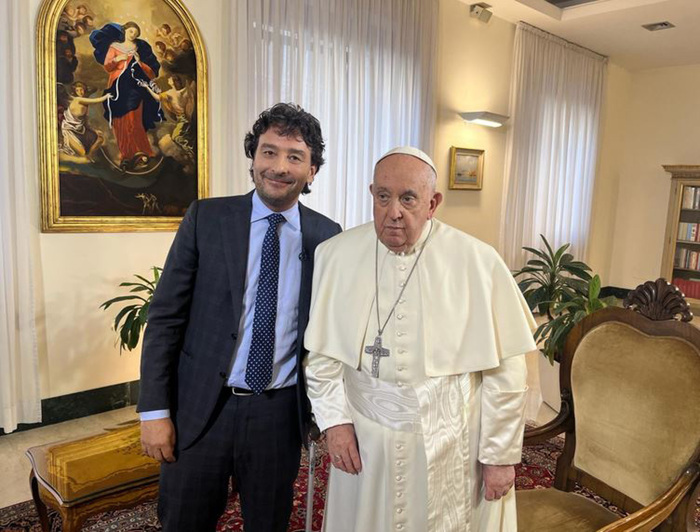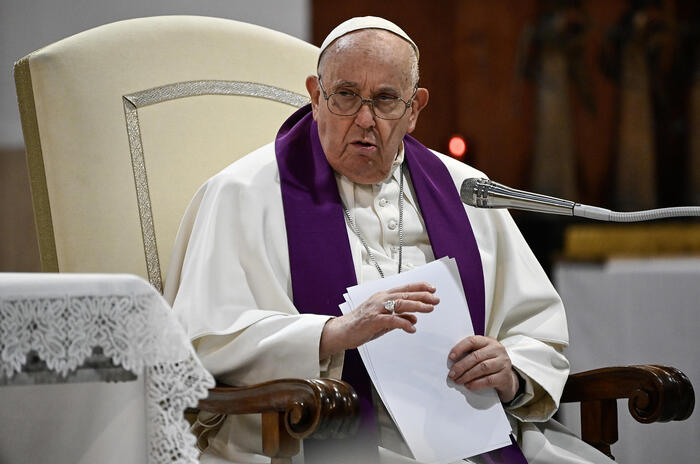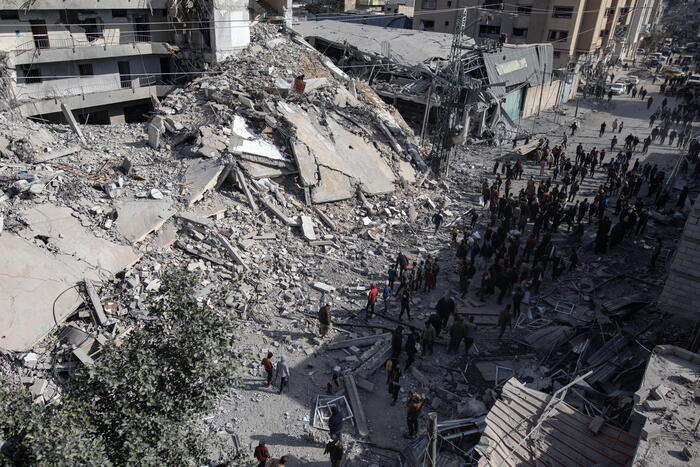Pope Francis during an audience in May 2021, at the Vatican.©VATICAN MEDIA /CPP / IPA (GTRES)
Pope Francis has tried to mediate the war between Russia and Ukraine.
For this he set in motion the entire high Vatican diplomacy.
He warned that he would be ready for a meeting even with Russian President Vladimir Putin.
His interlocutor should have been the patriarch of the Russian Orthodox Church, Vladimir Virill, the XVI Patriarch of Moscow and all Russia, with whom the pope had met in February 2016 in Cuba.
It was something historic because it was the first time that a maximum pontiff met with a Russian Orthodox patriarch in the almost 1,000 years of the schism between the two churches.
If it is true that relations between the two separate churches had improved on the occasion of the Second Vatican Council called by Pope John XXIII, to which some Orthodox patriarchs were invited and attended as observers, the truth is that there had never been a serious and personal meeting between Rome and Moscow.
None of the modern popes who traveled around the world were able to enter Russia.
Pope Francis and Russian Patriarch Kirill took advantage of the coincidence that they were traveling through Latin America, Kirill to Cuba and Francis to Mexico, and met at the Havana airport where they hugged, kissed and talked for two hours in a room in the airport.
When saying goodbye, Pope Francis told the Russian, using his tutelage: "Call me whenever you want."
The occasion for a new meeting to mediate the ongoing war in Ukraine would have been now.
It was Francisco's dream to try a mediation that would stop the conflict.
The Vatican scrutinized all the possibilities.
He even studied what President Putin's personal position on religious faith would be: whether he declared himself an atheist or a believer.
They learned that although the Russian uses the official Orthodox Church for his political ends, he personally reveals public gestures as a Christian believer.
Her mother had been a very devout woman who, after baptizing him, placed a small crucifix on her chest that, apparently, the Russian leader still wears as a talisman.
Putin has been seen before doing his risk sports, like throwing himself into the icy waters, crossing himself three times.
He also seems to be devoted to Saint Nicholas, a 4th-century Turkish saint to whom Russian Orthodox Christians were always very devoted.
The body of the saint has been in the crypt of a church in the Italian city of Bari for 900 years.
Pope Francis had sent a rib of the saint to Russia in May 2017. When the relic was placed in a glass-lined chest to make it visible, President Putin could be seen bowing before it and making the sign of the cross.
Against this background, Pope Francis even thought that this time he could achieve a dialogue with the Russian Orthodox Church, which had always resisted talking with Rome.
All the more so that today we know that when he was elected pope in the conclave, one of the purposes of Francis that he had always harbored was to attempt a reconciliation between the two separated churches.
Among them that of the infallibility of the Pope of Rome since in the first centuries there were only patriarchs in the Church with the same degree of power in the Church.
It was only when the bishop and patriarch of Rome were given powers over the other patriarchs that the schism broke out between them.
That Francis's idea when he was elected pope was to try to reunite these churches is revealed by the fact that in his first meeting with the faithful in Saint Peter's Square he surprised the world by presenting himself not as Pope but simply as Bishop of Rome and successor of the apostle Peter who had been the first Roman bishop.
Today it is known that presenting himself as bishop of Rome and having stripped off all the insignia of power of the pontiffs of the past, to the point of having rejected the sumptuous Vatican palaces to live in a room of a simple hotel, were the first nods of dialogue sent by Francis to the Orthodox Church in view of a possible reconciliation.
It is true that the history of the Church founded by the Jewish prophet Jesus, who preached peace and harmony among all, ended up involved in the religious wars that were called “holy wars”.
So many popes were warriors and in the great world conflicts they were many times on the side of one of the parties.
Only after the pontificate of Pope Pius XII, whose relations with Nazism, for example, have never been made clear, did the popes openly bet on peace against all wars.
The impossibility of Pope Francis to intervene directly to stop the war in Ukraine that he has called a "disgusting" war will undoubtedly be one of his great disappointments.
Now the dialogue between Rome and the Russian Orthodox Church will continue to be one of the stumbling blocks for a reconciliation between the two confessions and to be able to return to the beginnings of Christianity when there was only one faith and one creed not yet contaminated by the worldly calculations of political power. .
Subscribe here to the EL PAÍS América
newsletter
and receive all the key information on current affairs in the region
Exclusive content for subscribers
read without limits
subscribe
I'm already a subscriber















